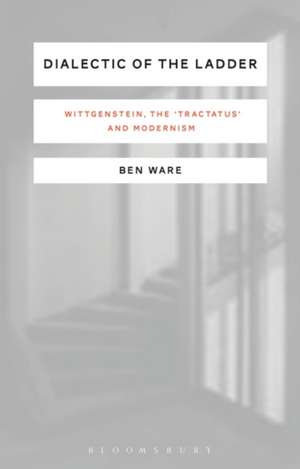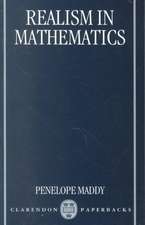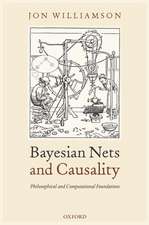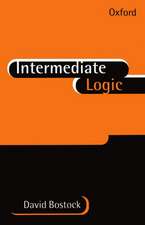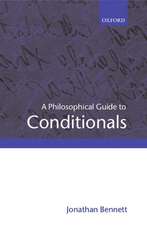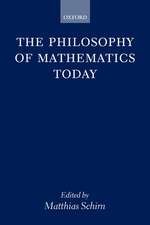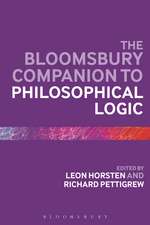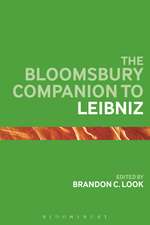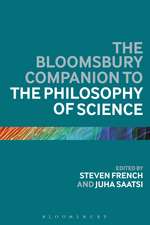Dialectic of the Ladder: Wittgenstein, the 'Tractatus' and Modernism
Autor Ben Wareen Limba Engleză Paperback – 19 apr 2017
| Toate formatele și edițiile | Preț | Express |
|---|---|---|
| Paperback (1) | 255.58 lei 43-57 zile | |
| Bloomsbury Publishing – 19 apr 2017 | 255.58 lei 43-57 zile | |
| Hardback (1) | 771.91 lei 43-57 zile | |
| Bloomsbury Publishing – 26 aug 2015 | 771.91 lei 43-57 zile |
Preț: 255.58 lei
Preț vechi: 330.18 lei
-23% Nou
Puncte Express: 383
Preț estimativ în valută:
48.92€ • 53.16$ • 41.12£
48.92€ • 53.16$ • 41.12£
Carte tipărită la comandă
Livrare economică 21 aprilie-05 mai
Preluare comenzi: 021 569.72.76
Specificații
ISBN-13: 9781350050921
ISBN-10: 135005092X
Pagini: 240
Dimensiuni: 140 x 216 x 12 mm
Greutate: 0.27 kg
Ediția:NIPPOD
Editura: Bloomsbury Publishing
Colecția Bloomsbury Academic
Locul publicării:London, United Kingdom
ISBN-10: 135005092X
Pagini: 240
Dimensiuni: 140 x 216 x 12 mm
Greutate: 0.27 kg
Ediția:NIPPOD
Editura: Bloomsbury Publishing
Colecția Bloomsbury Academic
Locul publicării:London, United Kingdom
Caracteristici
Demonstrates the continuing significance of Wittgenstein's philosophical thinking, and how it can be applied in areas such as literary and cultural theory, ethics, aesthetics and politics
Notă biografică
Ben Ware is a Visiting Research Fellow at the Institute of English Studies, School of Advanced Study, University of London, UK.
Cuprins
AcknowledgementsAbbreviationsPreface1 Modernity-Modernism-Avant-Garde2 Ethics and the Literary in Wittgenstein's Tractatus3 Modernity, Culture and the Question of Politics4 The Tractatus, Modernism and the Limits of Language5 Towards a Literary Use of Wittgenstein: The Tractatusand Kafka's 'Der Bau'NotesReferencesIndex
Recenzii
Given the fierce complexity of Wittgenstein's thought, Ware is to be praised for the clear exposition of his philosophy and for the many helpful suggestions he proffers for how the philosopher's ideas might be relevant to those studying modernism.
Overall, Benjamin Ware's dialectical reading of the Tractacus is a very stimulating and successful attempt to interpret the literature. I hope to read more from him!
[Ware] broadens the context of existing discussions of the early Wittgenstein's relation to modernist critiques of culture in a very helpful way ... Anyone interested in the text will benefit from engaging with this stimulating work.
Ben Ware's superb study does not only offer a lucid and original reading of Wittgenstein's Tractatus; it also situate it with admirable skill in the context of literary modernism and in doing so casts radical new light on this notoriously difficult philosophical text.
Ben Ware writes a refreshing, opinionated book about Tractatus, in which Ezra Pound, Ludwig Uhland, Oswald Spengler, Thomas Mann and Julien Benda get a non-obvious place in a reading of Wittgenstein. (Bloomsbury translation)
Departing from Wittgenstein's claim that the Tractatus is 'strictly philosophical and at the same time literary' Ben Ware succeeds in showing not only how it works as a contribution to literary modernism but also how this is inseparable from its philosophical achievement. He restores the strangeness to a text that we thought had become familiar and places it in the company of Kierkegaard, Nietzsche, Hofmannsthal and Kafka. It is sure to send readers back to the Tractatus with renewed wonder and curiosity.
Ludwig Wittgenstein notoriously wrote to Bertrand Russell that nobody would ever understand his Tractatus Logico-Philosophicus; for students of modernism and the avant-gardes this is no longer true, thanks to Ben Ware's exciting new study. With a majestic authorial voice Ware leads his readers to appreciate Wittgenstein's short text as a vital part of modern literary history. In a challenging reading of Kafka, Ware further shows how Wittgenstein's book carries within itself a singular way of reading and experiencing literature, as well as oneself. There is little more one can expect from a scholar's work. A formidable achievement.
Overall, Benjamin Ware's dialectical reading of the Tractacus is a very stimulating and successful attempt to interpret the literature. I hope to read more from him!
[Ware] broadens the context of existing discussions of the early Wittgenstein's relation to modernist critiques of culture in a very helpful way ... Anyone interested in the text will benefit from engaging with this stimulating work.
Ben Ware's superb study does not only offer a lucid and original reading of Wittgenstein's Tractatus; it also situate it with admirable skill in the context of literary modernism and in doing so casts radical new light on this notoriously difficult philosophical text.
Ben Ware writes a refreshing, opinionated book about Tractatus, in which Ezra Pound, Ludwig Uhland, Oswald Spengler, Thomas Mann and Julien Benda get a non-obvious place in a reading of Wittgenstein. (Bloomsbury translation)
Departing from Wittgenstein's claim that the Tractatus is 'strictly philosophical and at the same time literary' Ben Ware succeeds in showing not only how it works as a contribution to literary modernism but also how this is inseparable from its philosophical achievement. He restores the strangeness to a text that we thought had become familiar and places it in the company of Kierkegaard, Nietzsche, Hofmannsthal and Kafka. It is sure to send readers back to the Tractatus with renewed wonder and curiosity.
Ludwig Wittgenstein notoriously wrote to Bertrand Russell that nobody would ever understand his Tractatus Logico-Philosophicus; for students of modernism and the avant-gardes this is no longer true, thanks to Ben Ware's exciting new study. With a majestic authorial voice Ware leads his readers to appreciate Wittgenstein's short text as a vital part of modern literary history. In a challenging reading of Kafka, Ware further shows how Wittgenstein's book carries within itself a singular way of reading and experiencing literature, as well as oneself. There is little more one can expect from a scholar's work. A formidable achievement.
